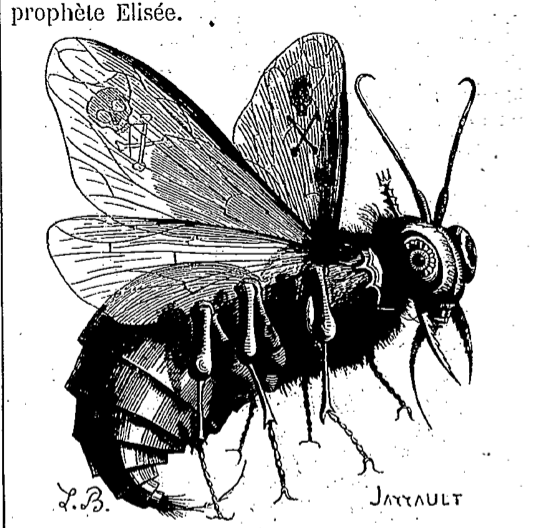Difference between revisions of "Template:Occult.live:Today's featured article"
Occultwiki (talk | contribs) |
Occultwiki (talk | contribs) |
||
| Line 1: | Line 1: | ||
[[File: | [[File:Beelzebub.png|250px|left]] | ||
'''[[Beelzebub]]''' is a name derived from a Philistine god, formerly worshipped in Ekron, and later adopted by some [[Abrahamic religion]]s as a major [[demon]]. The name Beelzebub is associated with the Canaanite god [[Bael|Baal]]. In [[Christianity|Christian]] theology texts, Beelzebub is another name for [[Satan]]. He is known in demonology as one of the seven princes of [[Hell]]. The ''[[Dictionnaire Infernal]]'' describes Beelzebub as a being capable of flying, known as the "Lord of the Flyers," or the "Lord of the Flies." | |||
In one understanding, ''Ba'al Zəbûb'' is translated literally as "lord of the flies." It was long ago suggested that there was a relationship between the Philistine god, and cults of flies—referring to a view of them as pests, feasting on excrement—appearing in the Hellenic world, such as Zeus Apomyios or Myiagros. This is confirmed by the Ugaritic text which depicts Ba'al expelling flies, which are the cause of a person's sickness. | |||
'''([[ | '''([[Beelzebub|Full Article...]])''' | ||
Revision as of 03:16, 2 October 2023
Beelzebub is a name derived from a Philistine god, formerly worshipped in Ekron, and later adopted by some Abrahamic religions as a major demon. The name Beelzebub is associated with the Canaanite god Baal. In Christian theology texts, Beelzebub is another name for Satan. He is known in demonology as one of the seven princes of Hell. The Dictionnaire Infernal describes Beelzebub as a being capable of flying, known as the "Lord of the Flyers," or the "Lord of the Flies."
In one understanding, Ba'al Zəbûb is translated literally as "lord of the flies." It was long ago suggested that there was a relationship between the Philistine god, and cults of flies—referring to a view of them as pests, feasting on excrement—appearing in the Hellenic world, such as Zeus Apomyios or Myiagros. This is confirmed by the Ugaritic text which depicts Ba'al expelling flies, which are the cause of a person's sickness.
